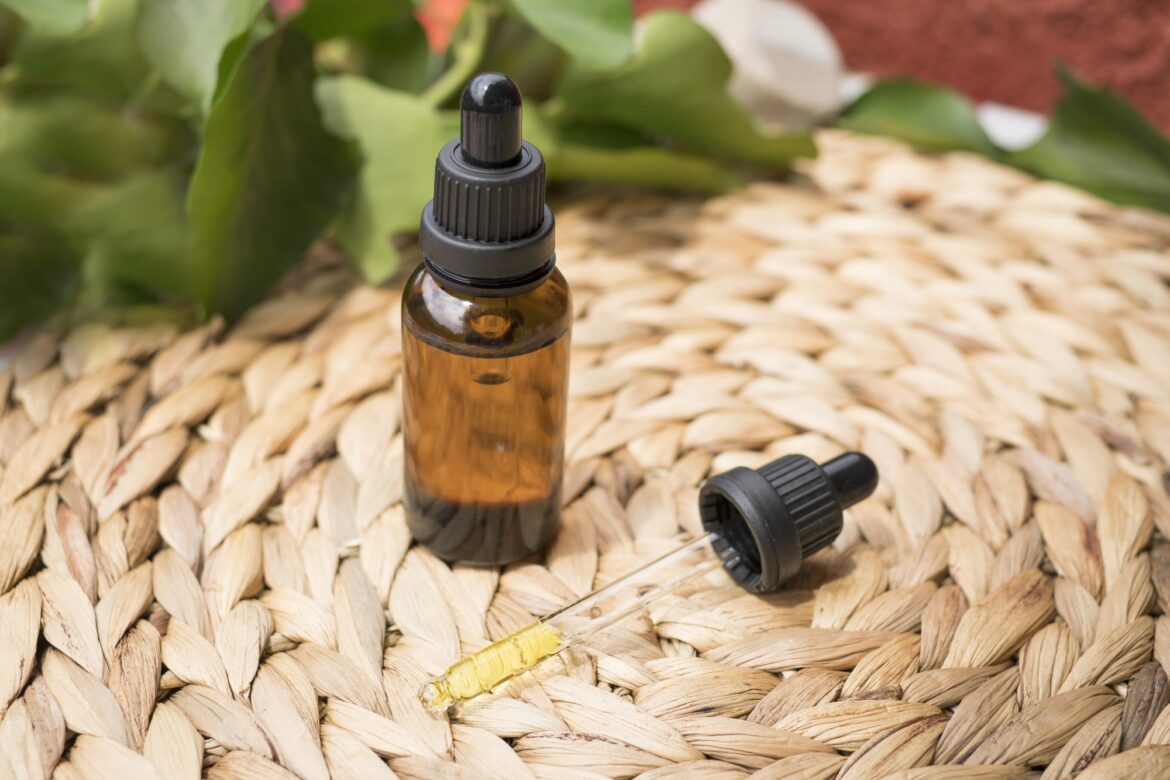What Is Tincture Used for? A Complete Guide for Beginners
Herbal studies come with a wealth of well-being information and health nurturing plant ally identification that can naturally help you overcome health concerns and seasonal issues. But, when you’re just getting started, learning about the complicated types of application and consumption options can be overwhelming!
Understanding the different methods to draw out the healing and health-boosting properties can seem like a tricky process, but the best place to start is from the root! If you want to finally understand tinctures, you’re in the right place!
What is tincture used for, and do tinctures really work? Read on for a beginner’s guide to help you finally understand this powerful herbal application and maybe get some ideas to make some at home!
What is a Tincture?
A tincture is a solution made of the extracted properties of any herb that you can take orally. They’re generally extracted in alcohol, but you can also use apple cider vinegar or even vegetable glycerine.
The liquid pulls out the active ingredients and concentrates them so that you can access the strongest dosage possible. You must be aware of the potential side effects and toxicity of the plants you use, as not all are good to use.
Because you take them by placing the drops directly into your mouth, they’re easy and convenient to use at any age. Tincture extraction tends to be more potent than other methods, so it’s best to consult a pediatrician or holistic doctor before giving a tincture to children.
The tincture liquid can be placed under the tongue to enter the bloodstream more quickly and directly. Some herbs will have an immediate effect like relaxation, but nutrition effects could take several weeks before noticing any change.
Tincture Benefits
Taking a tincture is as easy as placing drops of liquid under your tongue. Once administered, you’ll experience the benefits. Depending on the plants you use to make your tincture, the effects will vary, but the most common plants used and their advantages are:
- Chamomile Flower: Helps with anxiety, healing wounds, and inflammation reduction
- Garlic Cloves or Root: Lowering total and LDL cholesterol
- Ginger Root: Reducing nausea and motion sickness
- Ginkgo Biloba Leaf: Improving memory, boosting brain function, and preventing dementia
- Ginseng Root: Benefits psychological and immunity health
- Milk Thistle Fruit: Supporting liver health, balancing blood sugar, balancing blood sugar, and more
- St. John’s Wort Flower and Leaf: Can help ease the symptoms of depression
- Valerian Root: Encouraging relaxation and improving sleep quality
Tincture Side Effects
As with any new supplement or medication you take, it’s always critical to verify it will help you rather than hurt. If you take prescription medication, talk with your physician to ensure there won’t be any adverse side effects. If you don’t, you should know there is always a risk when you take a new supplement, so practice safe introduction techniques to ease the tincture into your daily routine.
Some potential side effects you could experience are:
- Adverse reactions
- Allergic reactions or anaphylaxis (NOTE: If you or someone else experience any symptoms of anaphylaxis like labored breathing or swallowing after taking a tincture, you should call 911 or go to the emergency room immediately.)
- Gastrointestinal or digestive issues
- Increased estrogenic issues
- Drastic reduction in blood sugar
- Headaches, dizziness, and light sensitivity
- Sleeplessness
- Tincture burns
Additionally, some plants or specific parts of plants are toxic. Taking too much of a particular supplement or infusing the wrong part of the plant could spell disaster. It’s crucial always to be certain you’re using and consuming the correct section of the plant.
How Are Tinctures Made?
If you want to make a tincture you can make them at home with special equipment designed to streamline and expedite the process. This method ensures complete extraction and a safe, sterile environment for your herbal infusion.
Or you can do it the old-fashioned way by steeping the plant matter in alcohol. To make a tincture this way, follow these steps:
- Find the correct part of the plant you want to use to make your tincture
- Fill up a glass jar ⅔ or ¾ of the way with the plant matter
- Pour in your 40–70 proof grain alcohol into the glass jar, completely covering the plant matter and making sure none is sticking out above the liquid
- Cover the jar with parchment paper and screw on the lid
- Let the solution sit for 6–8 weeks
- After it’s done curing, place a cheesecloth over a funnel and pour the solution out, letting it drip out to remove the liquid from the solid
- The strained liquid is your tincture, so it should be bottled and stored in a dark place to keep it fresh
Tincture Uses
Depending on the tincture you make or purchase, the uses can vary. Factors like the ingredients will significantly alter how they can be used.
Some popular tinctures and their uses are:
- Arnica: For inflammatory skin diseases, like rosacea, arnica is a great choice, but there is a risk of an allergic reaction
- Benzoin: Can help alleviate inflammation of the mouth, throat, and respiratory passages when inhales as a steam
- Iodine: A proven antiseptic, this tincture can help prevent infection from cuts, burns, and scrapes
- Elderberry: Containing a powerful antioxidant called anthocyanin, Elderberry can reduce inflammation and help prevent illness
- Turmeric: Containing curcumin, which is anti-inflammatory and antioxidant, turmeric can help reduce pain
- Echinacea: For a boost to the immune system or to treat and prevent colds, flu, and infection, echinacea is an excellent choice
- Cannabis (CBD): CBD or cannabidiol has multiple benefits like reducing anxiety, easing pain, and more
Before taking any tinctures, take the time to completely understand the benefits and potential side effects to ensure your safety.
Herbal Supplement Preparations: What’s the Difference?
When it comes to plant-based supplements, there are so many different terms to understand that it can be tricky learning how to tell the difference. Having a better understanding of these common ways to prepare herbs can help you better understand your plant remedy descriptions.
Alcohol Tinctures
Using alcohol to pull out the plant’s healing properties is the easiest way to make and take herbal supplements. Take some time to thoroughly understand how to properly prepare the tincture and how long to let it infuse, so the process is safe and effective.
Pros:
- Pulls out the medicinal properties
- Alcohol is a natural preservative, so it stays good for longer
- When bottled in amber or cobalt glass, it can be stored in any cool, dark place
Cons:
- Since it contains alcohol, it’s not the best option for treating children or those who avoid alcohol for religious or personal reasons
Vinegar-Based Tinctures
With a process similar to alcohol tincture preparation, this version boasts the same benefits without alcohol use. Culinary herbs work well in vinegar as it draws out the medicinal properties well.
Pros:
- A vinegar base makes these more versatile for consumption and even cooking
- Safe and effective for those who don’t or aren’t old enough to consume alcohol
Cons:
- Less effective than alcohol as some herbs require a more powerful solvent to pull out the healing components
- Shorter shelf life and requires refrigeration
Oxymels
Another herbal preparation you can try that is an extension of the tincture category is Oxymel, made with a combination of vinegar and honey. Preparing herbs this way has been used for thousands of years because raw honey and apple cider vinegar have many natural health benefits; the addition of herbs will boost your overall well-being. You can personalize your Oxymel to taste, add more honey to cut the sharp vinegar taste or help even the funkiest herbs more palatable.
Pros:
- Honey makes vinegar-based solutions more palatable
- Adding honey boosts the antibacterial, antibiotic, antimicrobial, and antiseptic properties of any herb, which makes them a powerful option to overcome seasonal concerns
Cons:
- Oxymels have a reduced shelf life, about a month in the fridge
- Raw honey can be harmful to young children, so you should consult their pediatrician or health care professional before administering to a young child
How to Make the Most of Tinctures
Whether you buy a ready-made tincture or try your hand at making your own, you must ensure the plant contents won’t negatively react with your health or current medications. Review your plant’s expected assistance and talk with a physician if there is any concern for an adverse reaction.
Make sure you store your tincture correctly and make a note of the use-by date if necessary, so you don’t consume expired plant matter. To make the most of your tincture, regardless of the style it’s made, be aware of the contents and proper dosing to keep the focus on boosting your health and wellness.
So, it’s time to answer the question, “What is tincture used for,” the answer? Anything! Each tincture will have specific uses, benefits, and expected responses based on what the plant ally offers.
For more insightful articles on hot topics, check out our blog!




